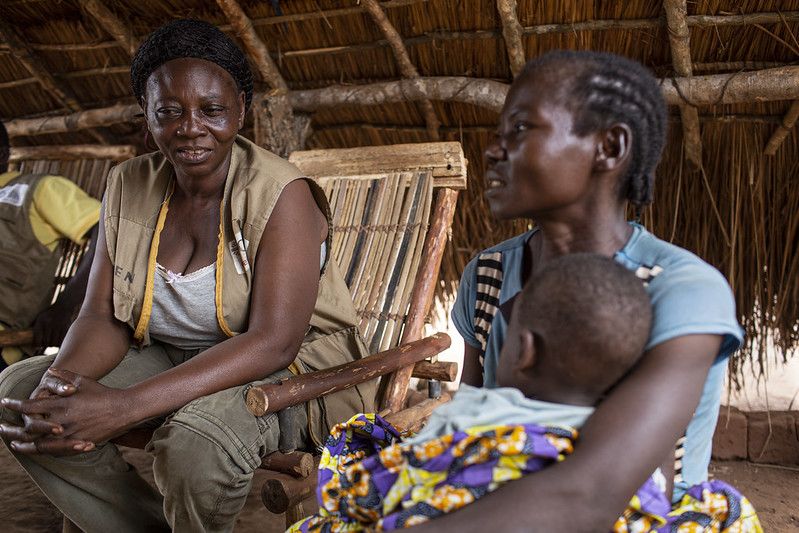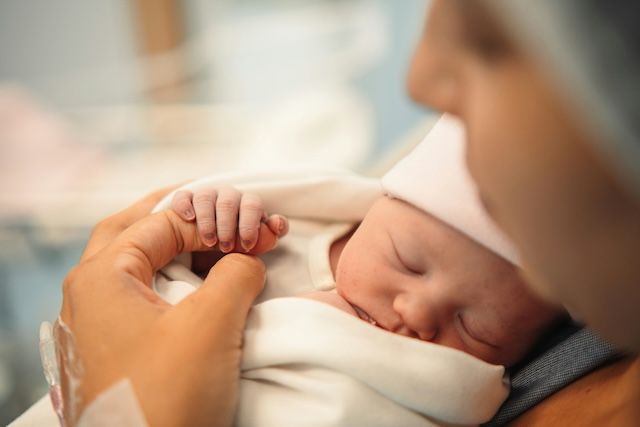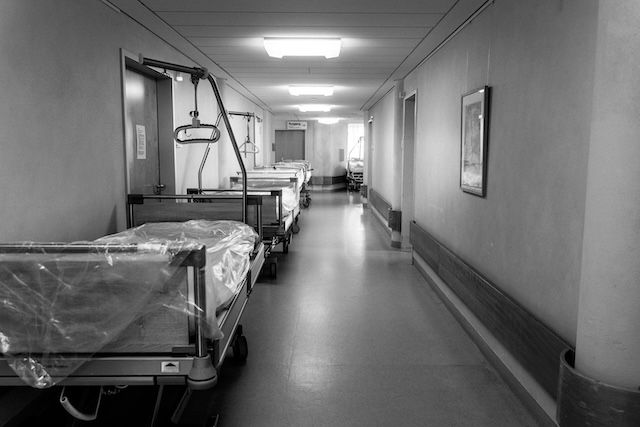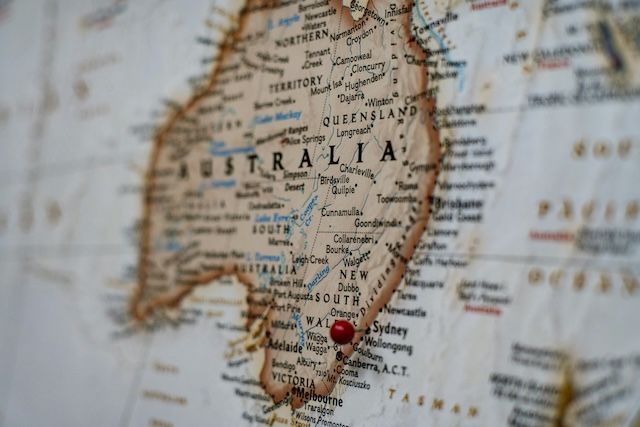Mobile midwifery in conflict zones
While health care has almost completely collapsed in regions of the Central African Republic, this mobile clinic supplies around 9,000 children, mothers, and pregnant women.
Genevieve Lokobo named her son after Caritas worker Regis Bessafi Piaka after he was born by Caritas midwife Marceline Kalebemo. If it had been a girl, it would have been called Marceline.
Without a doctor, without a midwife, without medical equipment - under such circumstances, a birth can quickly become a life-threatening event for mother and child. In the Central African Republic, the country with one of the highest child mortality rates in the world, this is bitter everyday life. The team of a mobile Caritas clinic provides help.
As hard as he can, one-year-old Régis squeezes his mother's breasts with his tiny hands for a little milk. He drinks a few drops and begins to nag. His mother calms him down in Sango, the most important language in the Central African Republic alongside French. She calls a maybe 8-year-old boy who takes little Régis in his arms and walks up and down with him in the shade of the trees until he calms down again.
The fact that Régis and his mother are alive at all is probably thanks to the team at the mobile Caritas clinic. Geneviève Lokobo, Régis' mother, had previously given birth to 9 children. The approximately 35-year-old woman, who doesn't exactly know her age, suspects that the many births are to blame for the fact that Régis' birth turned out to be so complicated. "I thank Caritas from the bottom of my heart," she says. And Marceline, who works as a midwife in the Caritas team, adds: "If we hadn't been there that day, she wouldn't have survived".
It is critical, but there is more to it than assisting through birth
Marceline Kalebemo stayed with Geneviève for two days until the heavy bleeding after the birth finally stopped.
Even now, the Caritas team regularly visits Geneviève with the SUV loaded with medicines. The small settlement consists of just four huts, 60 people live here. Small fields can be seen directly behind the houses. “I grow vegetables, we eat them. But I don't have the money to buy us something else to eat, like some fish or meat.” The signs of malnutrition are also visible in the children of Geneviève.

Photo Philipp Spalek
The already harvested cassava is lying on the ground to dry, bees are buzzing about it and little blue birds no bigger than a wren are hopping around. But the idyll that strikes you at first glance is deceptive. There is no water in the village, no electricity, no medicine. Malaria is a big problem.
The team from the mobile clinic has been coming since 2018, before that it was difficult and expensive to get medicine. “I lost three of my children. They had such a high fever, probably malaria - we spent all our money on medicine, sold everything we could sell. Then we took her to the hospital in Kouango. But soon we ran out of money for the medicines and to pay for the treatment - that's why they died," says Geneviève.
Since the mobile Caritas clinic has been in existence, the remaining children who contract malaria are treated by Caritas. For children and pregnant women, treatment and medicine is free. "If she's very lucky, the other seven will survive," says Kevin, the head of the mobile clinic.
“Thanks to Caritas, the people here are better off. Now people have the ability to deliver their babies reasonably safely and so many children are doing better. For that I thank Caritas from the bottom of my heart”.
Health care has almost completely collapsed in regions of the Central African Republic fought by militias. A mobile clinic supplies around 9,000 children, mothers and pregnant women with important medicines in the area around the city of Kouango.





